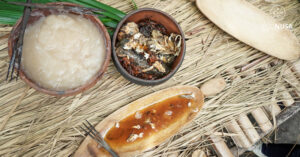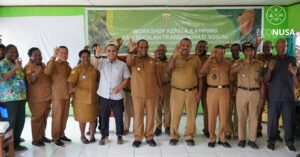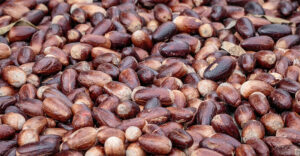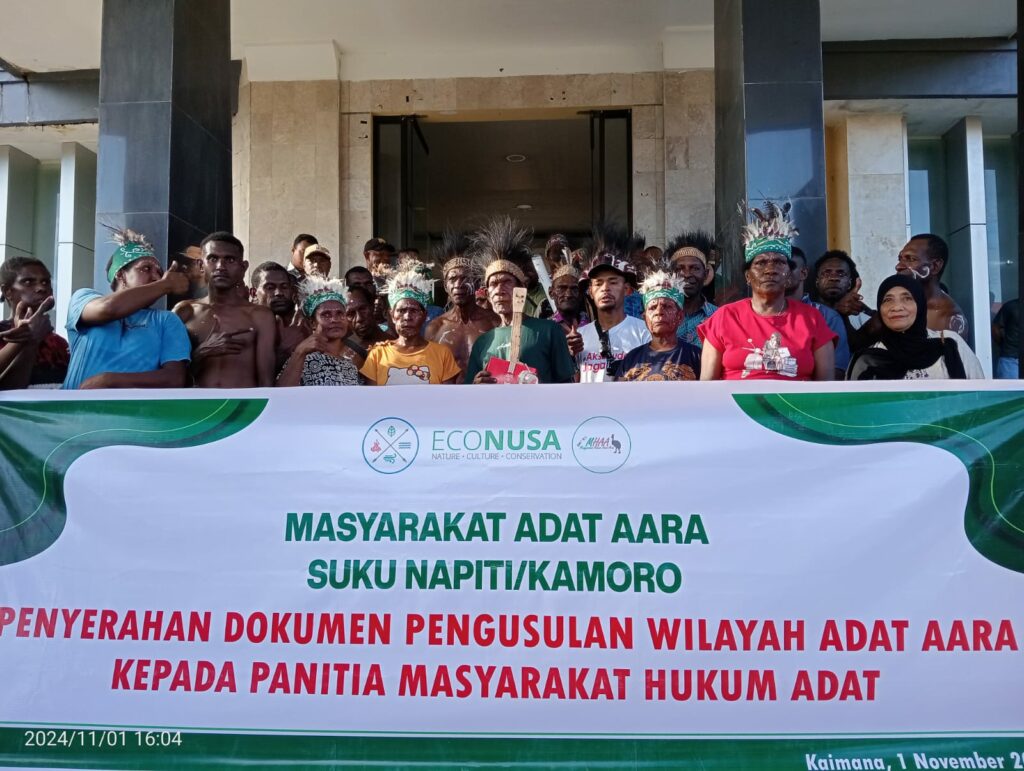
Amidst the bustle and dynamics of regional development, there is still a glimmer of hope that continues to burn from the remote areas of West Papua. This hope comes from the Aara Indigenous Community, which recently submitted a proposal for the recognition of their customary land to the Government of Kaimana Regency. This hope is not only about the legality of their land but also about the continuity of their lives, culture, and the natural resources they manage.
The proposal document for the customary land was directly submitted by representatives of the Aara Indigenous Community, led by the Head of Aara Hamlet, Melkianus Tenawe, to the Kaimana Regent’s office on November 1, 2024. “We have traveled a long way to deliver this document, hoping that our customary land will receive recognition in the form of a Customary Land Decree from the Regent,” said Tenawe. This simple yet meaningful statement represents more than 1,000 members of the Aara Indigenous Community who are waiting for legal certainty regarding the land and territory they have inhabited for generations.
Read Also: The Lakahia Community is Committed to Protecting Customary Territories
The process of submitting this proposal was not easy. EcoNusa has been assisting the Aara Indigenous Community since June 2024, starting with a free, prior, and informed consent (FPIC) process, which ensures that consent is given freely and without coercion. This was followed by mapping the customary land and conducting customary deliberations with neighboring clans. Next, all the administrative and technical requirements were prepared according to the West Papua Governor’s Regulation (Pergub) No. 25 of 2021 on the Procedures for Recognizing Indigenous Communities and Customary Lands. Once all the documents were complete, the community submitted their proposal for recognition to the local government.
Document Submission Ritual: A Cultural and Spiritual Journey
The submission of the customary land proposal document was not just an administrative process but also a cultural and spiritual journey. The Aara community, accompanied by traditional music and the Lakahia customary dance, moved toward the regent’s office. This symbolized that the recognition of their customary land is an essential part of their identity that must be respected.
The document was received by the Secretary of Kaimana, Donald Wakum, who also serves as the Chair of the Kaimana Indigenous Peoples Committee (MHA). In his speech, he expressed his appreciation for the Aara Indigenous Community’s efforts and promised to promptly verify and validate the documents. “Thank you to the community for their efforts in ensuring the continuity of indigenous rights through the mapping of customary lands,” he said.
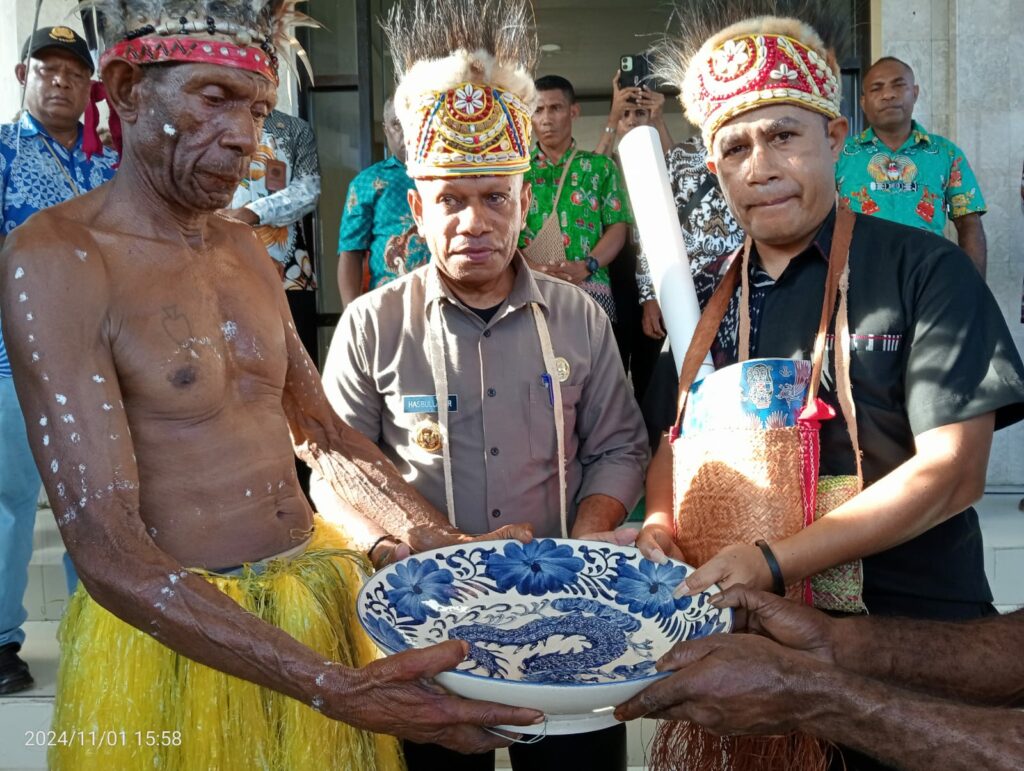
After the submission of the document, the next step is verification and validation by the MHA committee. This process will ensure that all the data and documents submitted are in compliance with existing regulations. If there are no issues, the documents will be forwarded to the Regent for the issuance of a Customary Land Decree.
Salmon Nay, the leader of the Napiti/Komoro customary council, hopes that the process will run smoothly and be completed soon. “We hope the local government can collaborate with EcoNusa to continue mapping the customary land in other villages in Kaimana Regency, not just in Boiya,” he said in his speech. The Aara community is part of the Napiti/Komoro ethnic group.
The Meaning of Customary Land Recognition for the Aara Community
For the Aara Indigenous Community, the recognition of their customary land is not just about land legality. The land is an integral part of their identity, culture, and the sustainability of their way of life. The land they manage is not only for the current generation but also for their future descendants. Therefore, the recognition of their customary land through a Customary Land Decree is essential to provide a strong legal foundation for managing natural resources and utilizing their customary territory.
As part of the land mapping process, the Aara Indigenous Community also held a customary deliberation to sign a report on the recognition of land boundaries and the division of forest zones in September 2024. This event involved the active participation of neighboring clans and representatives of the five sub-ethnic groups in the area. After the customary deliberation, they also signed a spatial map, which became an integral part of the customary land proposal documents.
With the issuance of the Customary Land Decree, the Aara community hopes to have more control over managing the natural resources in their area and to regulate their social and cultural life according to the customary values passed down through generations. This is an initial step toward sustainable resource management and empowering indigenous communities to build their future.
As a next step, it is hoped that the mapping of customary lands will continue in other villages across Kaimana Regency. The local government, along with supporting organizations like EcoNusa, is expected to continue collaborating to ensure that the rights of indigenous peoples in West Papua are recognized and respected.


